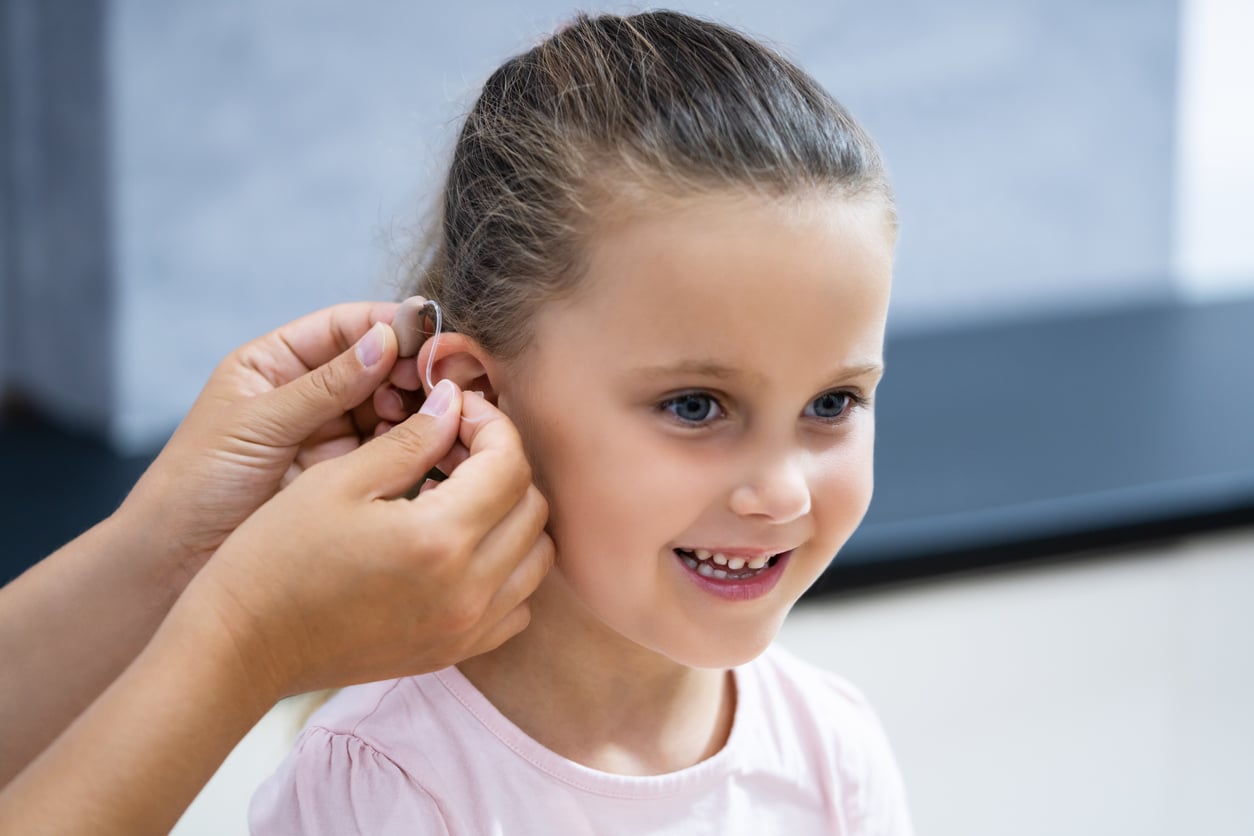Whether you’re driving your child to a birthday party at Heritage Park, scheduling doctor’s appointments or getting them ready for school in the morning, navigating the world of parenting can often feel like juggling a million impossible tasks at once. Amidst this whirlwind, knowing that your child’s hearing healthcare is taken care of can be a huge relief.
Understanding how to prevent and manage common hearing issues can provide peace of mind, allowing you to approach parenthood with confidence. Let’s explore some common pediatric hearing issues and treatment options to ease a little of your stress.
How Common are Pediatric Hearing Issues?

Two common pediatric hearing issues include:
- Hearing loss. Studies suggest that approximately 9% of children between the ages of 6 and 19 experience low or high-frequency hearing loss of at least 16 decibels.
- Auditory processing disorder (APD). APD affects between one and two children per 1,000. This condition often manifests similarly to hearing loss but involves difficulties processing auditory signals within the brain.
Managing Hearing Loss
While newborn hearing screenings are essential for early detection, it’s crucial to schedule regular hearing tests for your child to catch any issues that may arise later in life due to illness, genetics or trauma.
In addition to regular testing, keep an eye out for common signs of hearing loss. Signs of hearing loss in children may include delayed language skills, unresponsiveness when you call their name, difficulty hearing over background noise, abnormal speech patterns, high volume preference for music or TV and inattention during conversations.
If your child is diagnosed with hearing loss, treatment options may include hearing aids, cochlear implants or auditory training to prevent language delays and promote healthy communication skills.
Managing Auditory Processing Disorder (APD)
Unlike hearing loss, which lies in the ear, APD lies in the brain and affects its ability to interpret auditory signals efficiently. APD symptoms mirror hearing loss, but the root cause lies in auditory processing rather than ear function. Although there is no known cure for APD, therapies and exercises can assist children in managing the condition effectively. Speech therapy focused on enhancing auditory skills is particularly beneficial in helping children navigate the challenges of APD.
Navigating pediatric hearing issues as a parent may seem daunting, but it doesn’t have to be. By staying informed and seeking support from trusted specialists, you can ensure your child’s hearing health is well-managed, allowing them to thrive without unnecessary stress. Whether scheduling regular hearing assessments or exploring treatment options, taking proactive steps toward addressing pediatric hearing concerns can provide you and your child peace of mind.
Finding the right hearing healthcare for your child may not relieve all your stress, but you can rest a little easier knowing their hearing health is well taken care of. Contact Evergreen Speech and Hearing Clinic to schedule an appointment with one of our specialists.